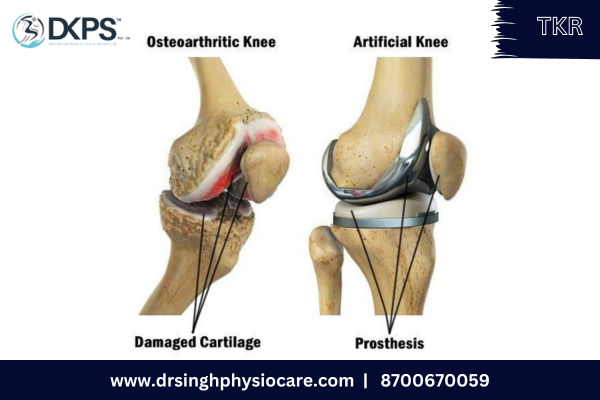- Home
- About Us
- DKPS Dealing
- BLOG
- Delhi NCR
- Delhi
- Physiotherapy at Home Near Me | Physiotherapist in South Delhi
- Best Chiropractor in Delhi
- Physiotherapist in Delhi
- Cupping Therapy in Delhi
- Home Nursing Services in Delhi
- Needle Therapy for Back Pain
- Sports Injury Physiotherapy
- Best Physiotherapist Visit at Home in Rohini Sector 24
- Physiotherapy at Home In Rohini Sector 9 |
- Physiotherapist in Pitampura | Physiotherapy at Home in Pitampura
- Physiotherapy at home in Rohini sector 29
- Physiotherapist in Paschim Vihar
- Physio home visit | Home Visit Physiotherapy |
- Physiotherapist in Saket | Best Physiotherapist in Saket |
- Physiotherapist In Janakpuri | Best Physiotherapist in Janakpuri |
- Best Physiotherapist in Punjabi Bagh | Punjabi Bagh Physiotherapist |
- Best Physiotherapist Service at Home in Dwarka, Delhi
- Best Physiotherapist in Chandigarh at Home Visit
- Faridabad
- Gurugram
- Noida
- Best Physiotherapy Gorakhpur
- Best Physiotherapist in Lucknow | Physiotherapist in Lucknow near me |
- Delhi
- Mumbai
- Delhi NCR
- Department
- Doctors
- Gallery
- Packages
- Contact Us
- Home
- About Us
- DKPS Dealing
- BLOG
- Delhi NCR
- Delhi
- Physiotherapy at Home Near Me | Physiotherapist in South Delhi
- Best Chiropractor in Delhi
- Physiotherapist in Delhi
- Cupping Therapy in Delhi
- Home Nursing Services in Delhi
- Needle Therapy for Back Pain
- Sports Injury Physiotherapy
- Best Physiotherapist Visit at Home in Rohini Sector 24
- Physiotherapy at Home In Rohini Sector 9 |
- Physiotherapist in Pitampura | Physiotherapy at Home in Pitampura
- Physiotherapy at home in Rohini sector 29
- Physiotherapist in Paschim Vihar
- Physio home visit | Home Visit Physiotherapy |
- Physiotherapist in Saket | Best Physiotherapist in Saket |
- Physiotherapist In Janakpuri | Best Physiotherapist in Janakpuri |
- Best Physiotherapist in Punjabi Bagh | Punjabi Bagh Physiotherapist |
- Best Physiotherapist Service at Home in Dwarka, Delhi
- Best Physiotherapist in Chandigarh at Home Visit
- Faridabad
- Gurugram
- Noida
- Best Physiotherapy Gorakhpur
- Best Physiotherapist in Lucknow | Physiotherapist in Lucknow near me |
- Delhi
- Mumbai
- Delhi NCR
- Department
- Doctors
- Gallery
- Packages
- Contact Us
Archives
- Home
- Archives

What is Total Knee Replacement ?
Introduction:
Dr. Singh Physio Care (DKPS) is a premier healthcare facility dedicated to providing specialized care in the field of orthopaedics, with a focus on What is Total Knee Replacement (TKR) ?. This comprehensive description aims to elucidate the various facets of TKR, including its definition, etiology, diagnosis, treatment, surgical procedures, and the crucial role of physiotherapy rehabilitation.
Total Knee Replacement (TKR) Defined:
Total Knee Replacement, also known as Total Knee Arthroplasty (TKA), is a surgical procedure designed to alleviate pain and restore function in individuals with severe knee joint damage. This damage may result from conditions such as knee osteoarthritis, rheumatoid arthritis, post-traumatic arthritis, or other degenerative joint diseases. TKR involves replacing the damaged knee joint with artificial components, typically made of metal and plastic, to improve joint functionality and enhance the patient’s overall quality of life.
Etiology of Knee Joint Damage:
The underlying causes of knee joint damage leading to the need for Total Knee Replacement are diverse. Osteoarthritis, the most common reason, is a degenerative joint disease characterized by the gradual breakdown of the joint’s cartilage. Rheumatoid arthritis, an autoimmune disorder, can also contribute to joint damage. Traumatic injuries, fractures, and other structural abnormalities may accelerate the degeneration of the knee joint, necessitating surgical intervention.
Diagnosis of Knee Joint Conditions:
Accurate diagnosis is paramount for determining the appropriateness of Total Knee Replacement. Physicians at DKPS employ a combination of clinical evaluations, imaging studies, and patient history to assess the extent of joint damage. X-rays, MRIs, and other imaging techniques aid in visualizing the severity of cartilage loss, joint deformities, and overall joint health. Thorough diagnostic assessments enable the medical team to formulate an individualized treatment plan.
Treatment Approaches for Knee Joint Conditions:
Non-surgical treatments are often explored before considering Total Knee Replacement. Lifestyle modifications, pain medications, physical therapy, and joint injections may provide relief in the early stages of knee joint conditions. However, when conservative measures prove ineffective, Total Knee Replacement becomes a viable option to alleviate pain and restore mobility.
Surgical Procedures in Total Knee Replacement:
Total Knee Replacement surgery is a meticulously planned and executed procedure. The patient is placed under anesthesia, and the surgical team, led by expert orthopedic surgeons at DKPS, makes precise incisions to access the knee joint. The damaged joint surfaces are removed, and the artificial components—comprising metal and plastic—are securely implanted. The surgical team ensures optimal alignment and balance to achieve the best possible outcome for the patient. Advanced techniques, such as minimally invasive surgery, may be employed to minimize recovery time and postoperative discomfort.
Physiotherapy Rehabilitation Post-Total Knee Replacement:
Physiotherapy plays a pivotal role in the successful rehabilitation of patients undergoing Total Knee Replacement. DKPS emphasizes a comprehensive and personalized physiotherapy program to promote healing, enhance joint flexibility, and rebuild strength. Early mobilization, guided exercises, and gait training are integral components of the rehabilitation process. The experienced physiotherapy team at DKPS tailors rehabilitation plans to each patient’s specific needs, ensuring a gradual and steady recovery.
The Initial Postoperative Period:
Following Total Knee Replacement, patients typically undergo a period of postoperative care within the hospital. Pain management, monitoring of vital signs, and early mobilization under the guidance of physiotherapists are crucial during this phase. The medical team closely monitors the patient’s progress and adjusts the rehabilitation plan accordingly.
Home-Based Rehabilitation:
As patients transition from the hospital to their homes, the focus shifts to a home-based rehabilitation program. Physiotherapists at DKPS provide detailed instructions for exercises, pain management strategies, and precautions to optimize recovery. Regular follow-up appointments enable the medical team to assess progress, address concerns, and make any necessary adjustments to the rehabilitation plan.
Long-Term Follow-up and Maintenance:
Total Knee Replacement is a long-term solution for individuals with debilitating knee joint conditions. Regular follow-up appointments at DKPS allow healthcare professionals to monitor joint health, address any emerging issues, and provide ongoing guidance for maintaining an active and healthy lifestyle. Patient education is emphasized, empowering individuals to make informed choices that contribute to the longevity and functionality of the artificial joint.
Conclusion:
Dr. Singh Physio Care (DKPS) stands at the forefront of orthopedic care, offering a comprehensive approach to Total Knee Replacement. From accurate diagnosis and expert surgical procedures to personalized physiotherapy rehabilitation, DKPS prioritizes patient well-being and strives to enhance the quality of life for individuals with severe knee joint conditions. Through a commitment to excellence, DKPS continues to be a beacon of hope for those seeking relief from debilitating knee pain and a return to optimal mobility.
Additional Links
For More Articles
DKPS Physiotherapy services at Home
DWARKA | PASCHIM VIHAR | PEERAGARHI | VIKASPURI | PITAMPURA | KOHAT ENCLAVE | RANI BAGH | ROHINI | JANAKPURI | MANGOLPURI | PUNJABI BAGH | NANGLOI | BAHADURGARH | NOIDA | GREATER NOIDA| GHAZIABAD | GURGAON | FARIDABAD | MUMBAI | GORAKHPUR | LUCKNOW | CHANDIGARH |
